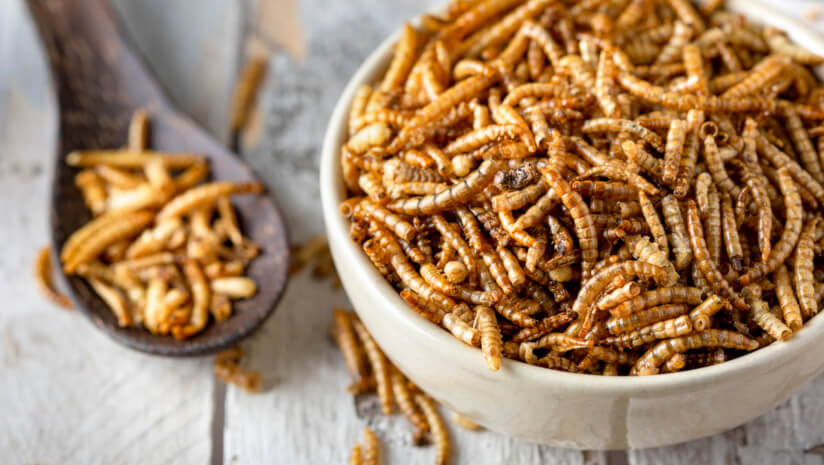
The number of patents granted for insect protein products decreased by 1.5% worldwide this year.
Appleyard Lees' Inside Green Innovation Progress Report attributes this decline to slower-than-expected adoption in Western diets and reduced R&D.
Insect farming could help improve the environmental impacts of human food systems in several ways, says James Myatt, Senior Associate Professor at Appleyard Lees.
Join the free Digital Protein Vision event
He explains that insect protein can reduce the carbon footprint of animal agriculture by replacing less sustainable proteins with insect-based products and insect-derived foods.
The report also shows that there is room for further growth in agriculture for insect-derived products. Patent applications for the use of insect waste as fertilizer have reached a record high.
The report says South Korea's increased interest in animal substitutes is likely the reason for the increase.
By 2022, South Korea will have filed twice as many insect protein patents as its closest rival, Europe (44). Russia and Indonesia also saw record numbers of new priority applications.
Most countries use insects for protein
Reports show that the Republic of Korea's Rural Development Administration has filed the most patents. These include applications for feed compositions for raising caterpillar larvae and for treating muscle atrophy by extracting mealworm larvae.
Other applications include the use of the black soldier fly to strengthen milk and eggs in cattle and chicken feed.
There appears to be a reason behind the slowdown in patent applications for insect proteins. [be] “There’s a lot of ambition in the industry,” says Chris Mason, partner at Appleyard Lees.
The same report also showed that herbal patents are a growing concern. Some of the world's biggest food and beverage brands have seen sales drop by 50%..
